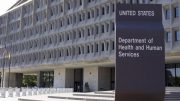 By: Lisa Keen/Keen News Service–
By: Lisa Keen/Keen News Service–
When Thelma and Louise drove off the cliff, the only people who got hurt were Thelma and Louise. But when Congress drives off the fiscal cliff, everybody’s going to feel the pain – especially those who depend on government-funded programs and organizations that depend on charitable contributions.
So, when Congress let the March 1 deadline for a deficit-cutting budget go by without adopting a deficit-cutting budget, the painful crunch was officially underway.
Darryl Cummings, chief of staff for the Los Angeles Gay & Lesbian Center, said his organization is “very concerned” about the potential impact of the sequestration – the term used to describe the 8.4 percent across-the-board cuts in the federal budget for non-defense discretionary spending.
“With the nation’s economy not yet recovered from the Great Recession,” he said, “low and moderate income people, including LGBT people, continue to be in greater need for health and human services. While the precise impacts of the sequester cuts are yet to be known, the Center relies on federal funding to provide services to people living with HIV, victims of domestic violence, mental health care, services to LGBT foster care youth, housing for homeless youth and many other services. We fear that the political antics being acted out in Washington will cause reductions to all of these programs and further strain the California and Los Angeles budgets to produce an even bigger loss in vital services, at a time when these services are needed the most.”
Cummings noted that a document released by the White House Tuesday (February 26) indicated AIDS Drug Assistance funding for California would take a “sizeable reduction.” And he said reductions to funding for the Affordable Care Act (ACA) would “greatly affect” the Los Angeles center’s efforts to expand the reach of its health care services.
A 2012 study by the independent Movement Advancement Project (MAP) of 63 LGBT centers found that 35 percent of them received federal grants and provided 27 percent of revenue to LGBT community centers in 2011. The majority of LGBT centers who received federal grants, said MAP, received them from the Department of Health and Human Services for HIV-related programs and services.
Cece Cox, chief executive officer of the Dallas Resource Center, the fourth largest LGBT center in the country, says a “large portion” of her organization’s funding for health services comes from the federal Ryan White CARE Act. Last July, the Center, as part of a multi-group Texas HIV/AIDS Coalition, warned that their caseloads are increasing and that flat-funding has already crippled efforts to reverse the spread of HIV.
In its comments concerning reauthorization of Ryan White, the AIDS Foundation of Chicago urged “new funding” to coordinate local infrastructure to better serve needy populations.
Capping charitable deductions
But its not just direct funding that various LGBT and HIV groups are worried about. One hidden impact of the fiscal cliff sequestration is the domino effect it is expected to have on worker income in a deepening recession and the subsequent impact that will have on the ability and willingness of donors to contribute to non-profit service groups. There is also concern that Congress may eventually adopt a change in the tax code that will put a cap on the amount of charitable donations a person can take as a deduction on their tax returns.
The L.A. Gay & Lesbian Center relies on private donations to cover roughly 20 percent of its overall budget, noted Cummings.
“We, like non-profit organizations nationally, experienced a substantial drop in private giving resulting from the recession,” said Cummings, “and should the economy worsen because of the failure of the federal government to reach budget agreements, we would likely experience a further reduction in private giving. This is part of the negative ripple effect that is created when the only solution presented to ‘fix’ the economy is based on cuts to discretionary spending.”
A study released in December 2011 by MAP noted that giving to LGBT groups dropped 12 percent between 2009 and 2010, a trend that has been in play for the past five years.
Leslie Calman, executive director of the Mautner Project, which helps lesbians with breast cancer and other life-threatening illnesses, said the sequestration problems won’t appear immediately for her group.
“We currently have one federal grant, but that grant is in progress and won’t be affected,” said Calman.
“The implications are more mid- and long-term and have to do with the fiscal health of metropolitan Washington D.C., where the expectation (according to what I’ve been reading) is that there will be lay-offs and furloughs of thousands of federal employees living in the metro D.C. area,” said Calman. “This is expected to have a negative impact on the economy of the region, and, of course, on the households of those immediately affected. Since half of Mautner Project revenues come from donations from individuals, this cannot be good for Mautner Project nor for other charities that serve the region.”
Cox of Dallas says there’s no way to know whether or how many potential donors might withhold contributions if a cap on charitable deductions is implemented.
“I think most people give because they believe in what we’re doing,” said Cox. But, she noted, studies have indicated that as many as 20 percent of charitable deductions are made online in the last two days of a tax year.
“So some people might be doing a calculation of the tax benefit to them,” said Cox. “And, if now, we’re going to realize less tax benefit, they may be giving less and that plausibly impacts all non-profits.”
© 2013 Keen News Service. All rights reserved.







